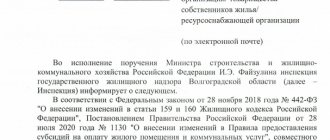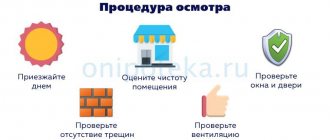Home / Government procurement / Federal Law 223
Back
Published: 09.21.2018
Reading time: 10 min
0
609
An electronic auction is one of the forms of procurement used within the framework of procurement under 223-FZ. It is applied subject to two conditions: in order to determine the winner, only the contract price matters, and the purchased goods and services can be compared solely by price criteria.
- Legislative regulation
- Dates
- Step by step procedure
- Documentation on procurement through electronic auction
- Cancellation of electronic auction
As determined by 223-FZ
In Part 18 of Art.
3.2 the legislator defines what it is - an open auction under 223 Federal Law. He defines it as a form of bidding in which the winner is the participant whose bid meets the requirements, procurement documentation, and who offered the lowest price by reducing the initial (maximum) contract price (ICP). If during an auction the price is reduced to zero, the auction is held for the right to conclude a deal. In this case, the winner is the participant whose application meets the requirements and who offered the highest price for the right to conclude a deal.
Events of the year
“We have been waiting for the opportunity to conduct all purchases electronically for five years, since the entry into force of 44-FZ in January 2014. In the first editions of the law, it was assumed that electronic document flow, including the submission of applications, would take place in the Unified Information System (EIS), but in the end these functions were transferred to eight electronic trading platforms for government procurement, which were selected in July 2021,” explains Anna Tresvyatskaya, expert for procurement.
Contracts based on the results of procurement will be concluded in the UIS, where it will be necessary to register as a supplier in the Unified Register of Procurement Participant (UPP). From January 1, 2021, such registration is mandatory for all bidders. Information from the register will be automatically transferred to all existing electronic trading platforms for government procurement. This means that the supplier will no longer have to undergo accreditation at each of the eight sites to participate in procurement.
Registration in the EIS will take place electronically. If a company intends to participate in procurement from 2021, it will need a qualified electronic signature to work in the Unified Information System. Registration is free and will be valid for three years, after which the procedure will have to be completed again.
On paper, only purchases from a single supplier will remain; for the customer’s work abroad or purchases from foreign contractors; to provide emergency medical care and normal life support for citizens; to provide humanitarian assistance and emergency response and by government decision.
Not only purchases within the contract system, according to Law No. 44-FZ, but also purchases from small and medium-sized businesses are moving into electronic form. They are carried out according to the rules of 223-FZ among companies with state participation, monopolies and others. Purchases from small businesses will take place on the same platforms as under 44-FZ, only in electronic form and only in four types of competitive procedures with the rules prescribed in the Civil Code: auction; contest; request for quotations; request for proposals.
Now 99 percent of all purchases under 223-FZ take place on 49 different sites with their own rules for registration of participants and work, the customers themselves use 5,000 types of procedures, and only 3.6 percent of purchases are made through competitive auctions and competitions. The rest comes from procurement from a single supplier and so-called “other procurement methods.” From January 1, 2021, small and medium-sized businesses will receive 15 percent of direct contracts from 27 trillion rubles (this is the volume of purchases under 223-FZ in 2021). This is approximately 4 trillion rubles.
The transition to electronic procurement has other advantages. It will become easier to apply. The electronic procurement form allows you to submit an application 24 hours a day from any region of Russia. The procurement cycle is shortened, since less time is spent on review (this applies to purchases up to three million rubles).
The risk of collusion is reduced. The customer will review all parts of the applications anonymously; he will find out who submitted the application and what the price is only after summing up the results. Information on price proposals is disclosed only in the final protocol. This reduces the likelihood of collusion and tailoring the result to suit your supplier, making the assessment of the application more objective.
Automated control reduces the chances of errors on the supplier’s side when submitting applications, and it simplifies the verification of participants for the customer. Thus, the declaration of compliance with uniform requirements, mandatory for all purchases, is generated by the site itself, and the supplier only has to sign it with his electronic signature.
During the electronic procedure, the platform performs part of the work that the commission does during paper procurement. For example, it checks whether the participant is in the Register of Unscrupulous Suppliers, whether he offered a price higher than the starting price, etc.
To secure applications, you need to use special accounts. This innovation has been in effect since October 1, 2021, but until January 1, 2019, it was possible to do without special accounts and participate only in paper procedures. “In electronic procurement at auctions and competitions, the application must be provided only with money through special accounts opened in authorized banks,” explains Anna Tresvyatskaya. — The government has not regulated the process of opening special accounts, so banks are still establishing their own operating rules. For example, some charge a fee for opening such an account and for operations on it (blocking or unblocking).”
The site has the right to charge all procurement participants a fee of one percent of the initial maximum purchase price, but not more than five thousand rubles. However, all sites immediately added VAT on top, that is, the fee from January 1, 2021 will be 6,000 rubles.
Representatives of small and medium-sized businesses were a little more fortunate: they were allowed to charge the same one percent of the initial price, but the upper range of the fee was limited to 2,000 rubles. In addition, according to the information letter of the Ministry of Finance No. 24-06-08/79659, VAT cannot be added to this amount.
Any change is scary. It's always easier to work according to the usual rules. Those who have not yet done this will have to master working with an electronic signature, get acquainted with all electronic digital signatures of government procurement, register in the Unified Information System, and open a special account. But thanks to the upcoming innovations, customers will receive more potential participants, and suppliers will be able to participate in more procurements with clear rules and a convenient application process. Situations when an application is rejected due to nitpicking in the format, the envelope is “lost” or opened ahead of time are becoming a thing of the past.
The greatest hopes are associated with the transition to electronic procurement from small and medium-sized businesses. Firstly, the volume of procurement under 223-FZ is 4 times greater than government procurement under 44-FZ. Secondly, “entry” into procurement under 223-FZ is more difficult, and the rules for conducting them are left to the customers. They themselves decided in what ways to conduct purchases, to conclude a contract based on their results or not. “I would like to believe that legislators will not backtrack, and small and medium-sized businesses will indeed have the opportunity to participate in any interesting procurement and win the competition. Businesses may be dissatisfied with the fact that it is no longer possible to participate in procurement under 44-FZ without financial investments, as was the case, for example, with a paper request for quotation, the expert argues. — There was no need to buy an electronic signature, secure applications and contracts, or pay to win. But, in my opinion, these costs are offset by the opportunity that has opened up to take part in procurement from a larger number of customers, literally without leaving the computer.”
We are preparing to hold an open competition under 223-FZ
1. We prepare the notice and documentation.
In the notice we indicate the following information:
- about the customer;
- method of procurement and deadlines for submitting proposals;
- subject of the agreement and NMC;
- securing the application.
Tender documentation 223-FZ must include:
- requirements for product properties and description of the procurement object (without indicating trademarks or with the words “or equivalent”);
- requirements for the preparation of proposals and product descriptions;
- delivery and payment procedure;
- NMCC;
- deadlines for submitting proposals;
- requirements for participants;
- criteria and procedure for evaluating proposals in accordance with the procurement regulations;
- if available, the amount of the application security. Collateral is not established for NMC less than 5 million rubles. In other cases, the customer has the right to provide in an amount of no more than 5% of the initial price (Part 27, Article 3.2);
- draft agreement.
2. We post the notice and documentation. The terms for procurement under 223-FZ are at least 15 days from the date of posting the notice in the Unified Information System (Part 17, Article 3.2). When carrying out the procedure among SMEs, the period for accepting applications may be reduced (from 7 days for NMC, no more than 30 million rubles - part 3 of article 3.4). If a closed tender is held under No. 223, the information is not posted in the Unified Information System.
3. If necessary, you can cancel the purchase at any time before the deadline for accepting applications. Later cancellation is allowed only in the presence of force majeure circumstances (Parts 5, 7, Article 3.2).
4. Making changes. You can change the provisions of the documentation by extending the time for submitting applications so that at least half of the period established by the procurement regulations remains before the end of the deadline for accepting applications. If an open competition is held in electronic form 223-FZ, the customer publishes changes in the Unified Information System, and the operator sends new information to the site within 1 hour and notifies participants.
5. Clarification of documentation. Any participant can send a request no later than 3 days before the deadline for accepting applications, and the customer is obliged to provide clarifications to the Unified Information System within 3 working days.
Open competition in electronic form 223-FZ, concept
An open competition, which is held in electronic format under 223-FZ, is a type of competition for which a notice is published on the EIS website, after which, on the ETP selected by the customer within the framework of 223-FZ, bidding takes place, in which any participant who has submitted an application can take part within the period specified in the notice.
This type of competition is carried out in cases where the price component cannot be dominant in the selection of the winning participant. The smallest number of evaluation criteria should be 2, given that the organizer must accept applications for no less than twenty days.
The main, distinctive feature of such a competition is that the commission selects applications based on the instructions in the documents for the competition, in a certain order.
The very procedure in accordance with which the competition should be held under 223-FZ is not regulated by the legislative framework. The customer must determine the procurement regulations himself.
The only main condition is the creation of a competition commission, which will choose the winner. But here it is worth noting that the composition of the commission members is subject to replacement if such a need arises.
Concept and regulation of competitive procurement
The competitive procedure for determining a procurement supplier is a set of activities carried out by the customer in order to select the most suitable contractor for a given procurement.
The choice of contractor occurs on the principles of equality, fairness and healthy competition between applicants for concluding a contract. To exclude possible corruption, competitive procedures are carried out primarily in electronic form under the control of the antimonopoly service.
Legislative regulation of competitive procedures is carried out:
- Law No. 223-FZ;
- Law No. 135 “On the Protection of Competition”;
- Procurement Regulations;
- Civil Code of the Russian Federation;
- local regulations.
In Art. 3 of Law No. 223 provides the conditions for competitive procurement, and Art. 3.2-3.3 indicates the procedure for determining the performer. Law No. 135 establishes the requirements for conducting competitive procedures and the procedure for considering complaints against customers in case of violation of the order of such procedures (Article 18.1 of Law No. 135).
Art. 447-449.1 of the Civil Code of the Russian Federation determine the specifics of concluding a contract based on the results of trade procedures, and the Procurement Regulations, drawn up by the customer, determine the detailed procedure for such procedures within the framework of procurement legislation. Local laws regulate procurement in a specific region or industry.









